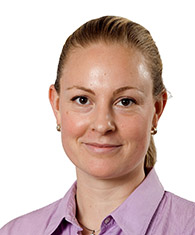The course includes risk management according to the standard, and its relation to tools and techniques such as FMEA and P-FMEA. It covers both the EU and US requirements. You learn the theory first during the online course, and then apply that theory during the two live virtual classroom sessions.
| Blended course | |||
|---|---|---|---|
|
Course length
|
|
|
approx.
17-27 hours |
|
Next classroom sessions
|
|
|
15-16 May 2024 - FULL
1PM-4:30PM CET 7-8 Aug 2024 1PM-4:30PM CET |
|
Course fee
(per person) |
|
|
|
ONLINE
€ 299
Average completion time 10-20 hours
Total video duration 3.5 hours
Number of quizzes 26
Final exam
Digital course companion
Course certificate
Ask the instructor
ONLINE LIFETIME
€ 399
Average completion time 10-20 hours
Total video duration 3.5 hours
Number of quizzes 26
Final exam
Digital course companion
Course certificate
Ask the instructor
Lifetime access to the course and instructor
BLENDED
YOU ARE HERE
€ 899
Average completion time 17-27 hours
Total video duration 3.5 hours
Number of quizzes 26
Final exam
Course certificate
Ask the instructor
Lifetime access to the course and instructor
Digital course companion
Classroom sessions (2 * 3.5 hours)
Templates
ADVANCED
€ 499
Average completion time 10-15 hours
Total video duration 5.5 hours
Number of quizzes 23
Final exam
Course certificate
Ask the instructor
Lifetime access to the course and instructor
Templates
INHOUSE TRAINING
CONTACT US
Tailored training to meet your company's needsThis course consists of two parts:
1. The Introduction to Risk management for Medical Devices and ISO 14971:2019 online course
2. Two half-day live virtual classroom sessions held by the course creator
First, you complete the popular introductory risk management online course. It covers topics such as risk analysis, risk evaluation, risk control and a short introduction to usability engineering.
You can start the online course immediately and you must successfully complete the final exam prior to the classroom sessions. If you have already completed the online course, you can register for the classroom sessions only.
The unique, highly interactive live virtual classroom sessions are facilitated by Peter Sebelius or Pontus Gedda. During the sessions, you get to apply the theory you have learnt via case studies, workshops, and discussions. There is plenty of time for Q&As, and with a maximum of 8 people per classroom session, all participants have the opportunity to learn first-hand from an industry expert.
A digital downloadable course companion is included, as well as time-saving templates on how to implement risk management effectively and efficiently.
We recommend this course to those who are new in the field, but also to professionals working with risk management, such as R&D and QA engineers, product and application specialists and clinical research specialists.
Medical Device HQ is a member of the Swedish standardisation committee TK355 developing standards such as ISO 13485, ISO 14971 and IEC 62366-1. Peter Sebelius has partaken in authoring all of the above standards at an international level.

Our blended learning courses combine the best of both worlds: online training and two half-day live virtual classroom sessions afterwards.
The online training allows for the flexibility in the way you learn, so that you can learn in a way which suits you best. You can access it whenever and wherever you want, and you can stop, start, and repeat the lessons and quizzes as often as you would like. To help maximise your learning, you can check your knowledge and understanding every step of the way by taking the assessment test beforehand, as well as the checkpoint quizzes that are found throughout the course. Ultimately, you will take a final exam at the end of the course.
The classroom sessions are highly interactive and focuses on applying the theory you have learnt during the online course with the guidance of the expert instructor. There are real-life case scenarios to work through and plenty of time for discussions and questions.
This course simplifies the risk management process, enabling you to ensure safety in medical devices.
Upon completion, you’ll be able to confidently engage in risk assessment, control implementation, and you will be familiar with key risk management tools like FMEA and P-FMEA.
Gain exclusive up to the minute information by learning from authors of the standards.
Our courses are developed by members of the standardization committees involved at both national and international levels, ensuring you receive first-hand knowledge and insights.
Our instructors are passionate about what they do, bringing their expertise and love for the subject into the learning experience.
Participate in active learning by asking questions directly to the instructor, taking part in group workshops and discussions. This allows you to seek clarification, share insights, apply and transfer knowledge.

The online course comprises a mixture of pre-recorded videos, quizzes, and a final exam. It is self-paced and flexible so that you can start, stop, and repeat as much as you like. You will have lifetime access to the online course (conditions apply).
The Introduction to Risk Management for Medical Devices and ISO 14971:2019 online course consists of 16 lessons which are outlined below. .
You will attend these two half-day live virtual instructor-led classroom sessions via Zoom. The focus is on practicing the new skills, knowledge, and understanding learnt during the online course, in a relaxed environment, with the guidance of an expert instructor. There are real-life case scenarios to work through, and plenty of time for discussions and questions.
The live virtual classes will cover the practical aspects of risk management, such as learning how to perform risk analysis, risk evaluation, and risk control according to ISO 14971:2019.
The maximum number of people in a classroom session is 8.
Included is a downloadable digital course companion and the following time-saving templates:
The blended course consists of two parts: the online course and two half-day live virtual classroom sessions.
The online course is made up of carefully scripted pre-recorded videos in order to maximise your learning. The live virtual classroom sessions are virtual face-to-face sessions where you will be interacting with the instructor and the other course participants via Zoom. You are required to be visible on video when taking the classroom sessions.
Yes, you can.
The time spent on the course varies greatly. If you are a beginner or have very high ambitions, you will typically spend more time on it. If you are already experienced in the field, you will probably finish it more quickly. The online course takes 10-20 hours to finish on average.
You do not have to watch the whole course at once. In fact, you can pause, resume, and replay as often as you like.
The two half-day live virtual classroom sessions, take approximately 7 hours in total.
You will be receiving a course certificate after completing the final exam. The course certificate is available when you log in to your account. Go to “My Courses”, and scroll down. You will find it under “Your Course Certificates”.
After successfully completing the classroom session, you will receive a course certificate covering both the online course and the classroom session by email.
If you wish to buy 3 or more seats, we invite you to reach out using the contact form to discuss discount options. Please note, if there are more than 5 people from your organisation wising to take the course, consider arranging an in-house course. The price will be lower, and the course can be customised to your needs.
If you complete the final exam within 6 months of enrolment, you will have lifetime access to the online course (conditions apply). If you do not, your course access will expire after 6 months.
Yes, you can download a course companion within the online course. It contains a selection of key slides from the course and is in PDF format.
There is no pass/fail score on the exam as such, but you are required to achieve 85% or more on the final exam to be allowed to attend the classroom sessions. The check-point quiz questions that are available during the online course will be a good model of what you will get on the final exam.
If you do not achieve 85%, the final exam can be reset for an administrative fee of 50 EUR, and you can take it again.
If you have already completed the online course and taken the final exam more than 3 weeks prior to the classroom sessions, and regardless of whether you have achieved >85%, we will reset the final exam for you for free.
You will need to retake the final exam by 3pm CET the day before the first classroom session. This is because we insist all participants have the information fresh in their mind in order to maximise the learning experience in the live virtual classroom sessions.
We offer a number of payment methods including credit card, GooglePay, ApplePay, PayPal, wire transfer/invoice depending on the country you are buying from. If you cannot find your country on the list at checkout or you are not given wire transfer as a payment method, you can submit your order via our invoice order form.

Peter Sebelius is a highly esteemed trainer, consultant and entrepreneur in the medical device industry. He is a member of the Joint Working Group that is revising the ISO 13485 and ISO 14971 standards.
He has vast ‘hands on’ experience, having developed, amongst other things, a mechanical chest compression device and an ex vivo perfusion machine for lungs. He has received numerous awards including the Great Design Award and the title “This year’s specialist” by Veckans affärer.

Pontus Gedda is a dedicated medical device specialist that has worked both in the industry, as a design engineer and project manager, and in the notified body world as a medical device lead auditor and manager.
He has vast experience in the MDR and its implementation through hands-on experience from implementing the MDR at a notified body and leading that notified body through a joint assessment and getting designated as an MDR notified body.
He was a senior manager at a notified body during the transition from MDD to MDR and also a member of the NB-MED group.


IMPORTANT – The course will be associated with the account that the purchase is made from. Are you taking the course or is someone else?
Choose your course options below
IMPORTANT – The course will be associated with the account that the purchase is made from. Are you taking the course or is someone else?
Dear users, the planned maintenance for this weekend is now complete!
You can now access the website and all functionalities are as usual. If you do experience any issues, please contact us at support@medicaldevicehq.com